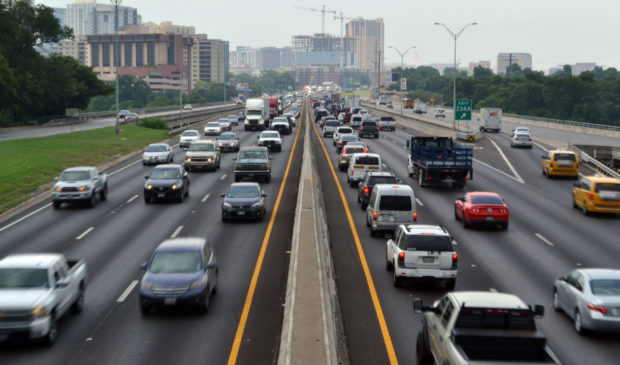Austin loses Smart City bid to Columbus
Wednesday, June 22, 2016 by
Caleb Pritchard It appears that United States Secretary of Transportation Anthony Foxx has decided that Austin is not a Smart City.
On Tuesday, Ohio’s two members of the U.S. Senate announced that their state capital, Columbus, won the U.S. Department of Transportation’s Smart City Challenge and the $50 million purse that comes with the title.
A spokesperson for the department declined to confirm that the competition between seven cities — Austin; Columbus; San Francisco; Kansas City, Missouri; Pittsburgh; Denver and Portland, Oregon — had been decided.
“This decision will be made after many hours of technical review from our experts here at DOT, the Secretary working with the technical review team and our senior leadership here at the department,” Jon Romano wrote in an email to the Austin Monitor.
However, Sen. Sherrod Brown and Sen. Rob Portman announced on each of their websites that Columbus had been selected as the testing grounds for its proposed transportation innovations.
“This funding is a game changer for the City of Columbus and central Ohio,” Sen. Brown said in a statement. He also said that a local investment of $90 million had been pledged to match the $50 million guaranteed by the Department of Transportation and billionaire philanthropist Paul Allen’s Vulcan Inc.
The news is a setback for Mayor Steve Adler, who had made the city’s pursuit of the Smart City grant a key component of his Year of Mobility initiative. In myriad speeches and social media posts, the mayor and his team portrayed Austin as ideally suited to serve as a laboratory for innovative strategies and technologies, including automated vehicles, traffic sensors and multimodal transportation centers.
Indeed, it seemed early on that Austin had something of a leg up. In March, Foxx chose to announce the seven finalists with Adler by his side at an event during South by Southwest. One week later, Adler boldly tweeted, “If we win the the (sic) #smartcities challenge, Austin will become the capital of the future.”
Soon after that, the local conversation became dominated by the referendum on the proposed ordinance backed by Uber and Lyft to ease the city’s regulations on transportation network companies. The U.S. Chamber of Commerce President Amanda Eversole wrote a letter to Foxx in April suggesting that Uber and Lyft would leave if their campaign failed.
“Clearly, this would be a setback to the Smart City approach which should leverage an ‘all of the above’ approach when it comes to mobility and access,” Eversole wrote.
Days after that letter was sent, Adler held a press conference on the front steps of City Hall in which he rejected Eversole’s argument. However, he left the door open to a potential upset.
“We want to win the Smart Cities Challenge, but at the end of the day our future is not dependent on whether we win,” Adler declared. “We’re going to execute our plan whether we win or not.”
Which means that, now that the city has not won, Austin’s leaders will have to find an alternative source for the $50 million Adler was banking on to deploy his Smart City plan. Earlier this month, the mayor’s communications director, Jason Stanford, told the Monitor, “Ford will give us some money. A lot of these companies that are going to make a lot of money doing these technologies, they want to do them in Austin, so we’re gonna go ahead and do them.”
While the source of funding for the mayor’s commitment to Smart City technology remains up in the air, it’s casting shadows on the future of his massive $720 million mobility bond proposal. Several of the potential improvements to the city’s busiest corridors outlined in that plan overlap with the Smart City proposal. Indeed, the mayor has referred to his bond package as “Smart Corridors.”
One potential lifeline for Austin’s fading Smart City hopes is from the U.S. Department of Transportation itself. Officials announced in a press release sent out on Tuesday afternoon that the department “will collaborate with government and private sector partners to help all seven finalist cities in the Smart City Challenge — not just the challenge winner — move forward with ideas that each city developed over the past six months.”
“There has been a remarkable spirit of cooperation as these cities moved through the competition, and working together with our partners, we are excited to help empower all seven finalists to move forward in creating smart cities,” Foxx said, according to the release.
The Monitor reached out to Adler’s office late Tuesday morning for a comment on the situation. Stanford told a reporter that they would have a statement soon. When the reporter asked if he should look for it in his inbox, Stanford replied, “You can do whatever you want.”
You're a community leader
And we’re honored you look to us for serious, in-depth news. You know a strong community needs local and dedicated watchdog reporting. We’re here for you and that won’t change. Now will you take the powerful next step and support our nonprofit news organization?




